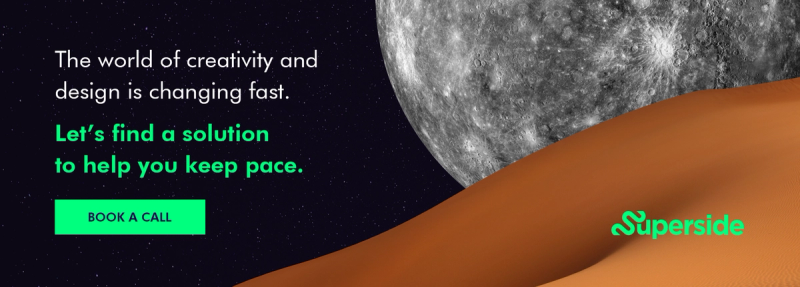
Our startup, Superside (formerly known as Konsus) – providing on-demand freelancers 24/7 via chat – achieved 500% growth from our launches on Product Hunt and Hacker News. We spent three weeks leading up to our Feb. 8 launch day planning and making tough decisions. The following is an account of our post-campaign analytics as well as some some details of what worked for us and our major takeaways. We’re sharing these insights to help founders better understand how a Product Hunt campaign affects a startup and how you can best prepare.
Preparation
We started preparing three weeks before our Product Hunt launch. It was an intense time, packed with research and planning. We wanted to track and analyze every detail after the launch, which meant we had to be ready.
What we did to prepare:
• Created an Excel list with emails and a short bio for 100 important people we identified, from Nomad bloggers to Product Hunters
• Created two landing pages
• Developed a $100 USD offer for Product Hunters to use on for our services, allowing many new customers to get their job done for free.
• Facebook and Twitter banner ads
• Icons and screenshots for Product Hunt page
• Analytics and advertising setup
• Ambitious target to get 500 upvotes on Product Hunt in 24 hours
Launch Day
If you’re prepared, launch day should be a breeze. We sent an email to our Hunter with the exact time we wanted to start; within 30 minutes, we were featured on the main page. We added our CEO and CTO through Twitter and starting sending emails to bloggers, friends and any media outlets we had identified during our prep phase. We actively spread the word about launch to everyone working on our platform, and asked everyone to recruit their friends to help, too.
Our main tasks:
• Have each team member invite 5-10 friends to check out Product Hunt
• Follow up to make sure everyone did
• Spread the word about the campaign on social media
We have notify.ly enabled on our main Slack channel, so we get to see every retweet and share in real time. The updates were unrelenting all day, including retweets from a few Twitter accounts with more than 1 million followers.
Our initial rate was about 30-50 upvotes per hour, which slowed after we reached 500 upvotes – our target. We were in second place on Product Hunt until we got our 200 upvotes; after that the algorithm penalty activated and our rating decreased slightly. Using just the number of votes, we were firmly in second place most of the day.
We created two versions of a landing page. One was for organic visitors from Product Hunt and one was for paid advertising clicks on Facebook, Google and Twitter. These pages helped promote our Product Hunt $100 USD discount campaign (we know that it is restricted). We also started a post on news.ycombinator.com, so we got significant extra exposure from that source.
Version for Product Hunt visitors:
Version for paid advertising:
Analytics
• Comparing only organic traffic for the same five-day period, Feb. 8 -12 showed a significant growth: x5.1 or 500%, with 2.2x less bounce rate.
• 90% of paid acquisition for Product Hunt didn't work well (highest bounce rate, rating loss on Product Hunt, high cost of advertising made this a negative for us).
• Organic Product Hunt/Hacker News views increased time spent on our page (the average time spent was 1:40 on desktops and 0:55 on mobile devices, compared to 0:54 previous weeks.
• Approximately 15-20% visitors from Product Hunt use mobile browsers and tablets; be sure that your site is optimized for a great mobile user experience.
• "Really Long Tail" traffic is not fake; the traffic we experienced was a result of our advertising and organic experiment.
• Orders started to come in every 10 minutes; it was hard to handle, and our team was feeling overwhelmed quickly.
These stats from Google Analytics show why paid promotions are not as valuable as organic visits:
The channels that performed best for us on Product Hunt and Hacker News launch dates:
• News.ycombinator.com and Product Hunt
• Google CPC (i.e., Adwords)
• Google Search
The worst channel for us:
We found that Facebook leaves a big hole in our budget, and doesn’t deliver the return on investment we see with other avenues, even with well-designed banners, a clear message and good CTR. Our goal conversion rate for Feb. 8-12 is below; you can see how Facebook left a hole.

Conclusions
• Prepare 2-3 weeks before. Have a clear plan.
• Design and test your analytics before launch day.
• Product Hunt and Hacker News campaigns will provide a spike in social media activity, feedback, session length and general engagement - arguably more than any other activity.
• Number of orders will increase significantly, but don't lie to yourself -- if you are giving something for free, there’s a good chance it will generate more (not always valuable) business.
• Paid or Motivated boost can be a bad trick on Product Hunt
• Social proof can be a great trampoline to get some media attention. For example, Superside was featured in Business Insider.
• We ran a second Product Hunt campaign for our Slackbot integration and were featured on the main page again, but with far fewer upvotes.
Takeaways
This experience was a great benchmark for how well we can scale our team, handle a variety of requests and work under pressure. We gained visibility, clients and confidence. Most importantly, our team has doubled in size as a result of our growth during that period!












